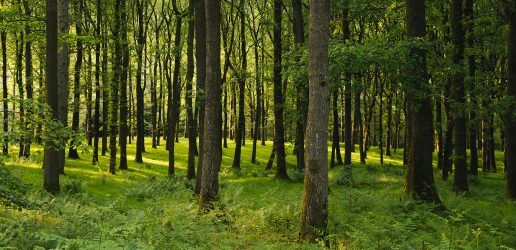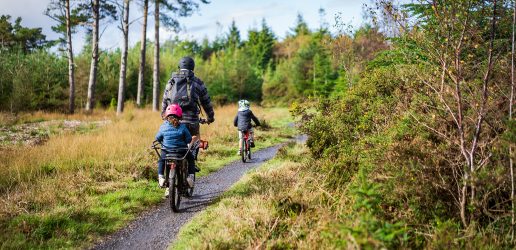
A four-year research project has been launched to help tackle the biodiversity crisis by identifying how the UK’s most precious woodland and meadow habitats can be successfully restored by looking at how all the different plants, animals and other organisms in ecosystems work together.
The £2 million project, funded by Natural Environment Research Council, aims to reverse habitat loss and the degradation of land caused by agricultural intensification, urban development, climate change and pollution.
It will look at how these ecosystems knit together through complex individual processes like nutrient cycling, carbon capture and pollination – rather than simply looking at the presence and number of particular species. This is an innovative approach to understanding ecosystem processes and will have major implications for ecological restoration target-setting.
The research is due to get under way at over 100 meadow and woodland sites, currently in the process of being restored, across the country.
The partnership project is led by Cranfield University including the National Trust, Stirling University, the UK Centre for Ecology & Hydrology (UKCEH) and Forest Research.
It hopes to provide evidence to improve the effectiveness of ecosystem restoration, using woodlands and meadows as examples of some of our most heavily ecologically degraded environments.
The research will help conservationists and those involved in restoration ensure interventions such as tree planting or re-introducing species are made to maximum benefit.
Professor Jim Harris of Cranfield University, Lead Principal Investigator for the project, said “Improving our ability to restore functional ecosystems is crucial to ensuring we restore nature and achieve net gain in line with Government plans ‘to be the first generation to leave the environment in a better state than we found it.
“We are trying to understand how the nuts, bolts and cogs of the ecosystems that we are interested in reassemble and function, and whether this can be done quickly – or whether we need a lot of patience with Mother Nature – who you simply cannot fool.”
Teams of soil ecologists, botanists, entomologists and animal behaviourists will kick off an integrated programme of field sampling and laboratory analysis, together with remote sensing, bioinformatics, and statistical and mathematical analysis. This programme will provide a detailed exploration of different restoration sites and the factors which control their development and stability.
Dr Kevin Watts of Forest Research said: “There is an urgent imperative to restore degraded ecosystems across the Globe to tackle the biodiversity and climate crises. Yet, ecosystem restoration can be a complex, expensive and time-consuming process and it may take decades, or even centuries, to see the desired results.”
“This project will help unpick and examine the vital elements underpinning successful restoration and provide important measures to assess whether restorations are actually working and we are on the correct pathway to restoration success.”
More information about the project.
Image: National Trust and John Miller.

The British Woodlands Survey, 2025, which focuses on resilience launches.

Forest Research has released the results of the Public Opinion of Forestry Survey 2025 for England and the UK, Scotland and Wales.
New research has been published which explores how to enable and encourage access to woodlands for diverse members of the public.

The British Woodlands Survey, 2025, which focuses on resilience launches.

Forest Research has released the results of the Public Opinion of Forestry Survey 2025 for England and the UK, Scotland and Wales.
New research has been published which explores how to enable and encourage access to woodlands for diverse members of the public.